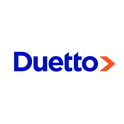The Definitive Guide to Hotel Blockchain Technology

In the past few months, blockchain technology has become the new buzzword in hotel technology. Nearly every day, the travel technology press publishes a story touting the coming wave of innovation in this space, and how blockchains might be at the crux of that for the travel industry.
Despite the hype, it is clear that blockchain and distributed ledger technologies are not fully matured. As a result, we are not quite at the point of widespread adoption just yet. At a recent conference, speakers likened blockchain to the 1989-1990 Internet, a time when the basics were still being figured out. Yet, according to multiple reports, the craze is spreading quickly, with new blockchains being launched weekly in a variety of industries and applications.
The time when blockchain becomes relevant to the hotel industry is not far away, and executives in the industry need to pay attention to it, said Patrick Dunphy, CEO of Hospitality Technology Next Generation.
"We're beyond the point where blockchain is cutting edge, and it's going to pass us by if we don't pay attention," Dunphy said. "Although we're not there yet from a distribution perspective, we shouldn't ignore the underlying technology."
In response to the interest in blockchain, the Hospitality Financial Technology Professionals association has formed a task force to study the technology and its future role in hospitality.
WHAT IS BLOCKCHAIN?
In general, blockchain can be described as an incorruptible, decentralized ledger of economic transactions that can be programmed to record anything of value, not just financial transactions. Among other things, that could include hotel and other travel bookings.
Blockchain first became part of the technology conversation through its role in the development of so-called cryptocurrencies, such as Bitcoin and Ethereum.
One significant advantage in deploying blockchain technology is cost savings. All parties can access the blockchain, which updates at specific intervals. Using distributed-ledger technology, blockchain technology removes the middlemen in transactions, such as hotel bookings. The results are lower transaction fees and a more efficient route between supplier (hotel) and end user (guest).
WHY DOES IT MATTER FOR HOTELS?
While some travel technology companies, especially in the airline and loyalty spaces, have produced blockchain prototypes, real-world hotel distribution and revenue strategy applications are so far few and far between.
One of the most aggressive proponents of blockchain in the hotel industry has been TUI Group, a multi-faceted travel group that has 300 hotels in its portfolio, including those in a joint venture with Rui Hotels. The company currently manages an in-house private blockchain to handle internal processes and manage distribution of its hotel inventory and other assets.
The company is also working with IBM to create a public blockchain for hotel distribution and has another project in the works, BedSwap, to assist in its revenue management functions. Through BedSwap, TUI intends to connect its revenue management infrastructure to its property management system through blockchain.
The system would allow the company to capture guest data from the PMS and feed it into the blockchain, creating a marketing engine that would enable one-to-one marketing to guests. The project is still in test phase, with no announced launch date.
Another ambitious blockchain proposal in travel comes from an organization based in Switzerland. Winding Tree says it wants to create blockchain to build a decentralized distribution platform that cuts out online travel agencies in consumer/travel supplier transactions.
According to the group's announcements, neither traveler nor hotel would pay commissions on transactions. Instead, the blockchain would impose small transaction fees for every smart-contract executed by the network. So far, the effort appears to be more hype than reality, but it shows the kind of direction the technology could take. It aims to launch a kind of crowdsourced fundraising for the project on November 1.
In Australia, online travel agency WebJet recently partnered with Microsoft to create a blockchain online booking platform for airlines, car rental and hotels in parts of Asia. The platform uses a version of blockchain application Ethereum to power the site.
Is the hotel industry ready for widespread deployment of blockchain technology? Probably not, but it seems likely a breakthrough could occur shortly, and it will probably center on distribution. The ultimate benefits to hotels with blockchain distribution could be lower costs of acquisition and greater control over the distribution process.
Thanks to Khalid Ladha of Duetto Research's Customer Success team for his help in preparing this article.
About Duetto
Duetto is the leading revenue strategy platform for the hospitality industry, serving over 7,200 hotels, casinos, and resorts worldwide. More than just a traditional RMS, Duetto is building the industry's first Revenue & Profit Operating System, connecting all aspects of hotel revenue and operations in one unified platform. Powered by automation, AI, and profitability insights, it helps commercial teams make smarter, faster decisions based on total profit — not just room revenue. Recognized as the world's #1 revenue management system from 2022 to 2025 by HotelTechAwards, Duetto is redefining how hospitality drives commercial success.
